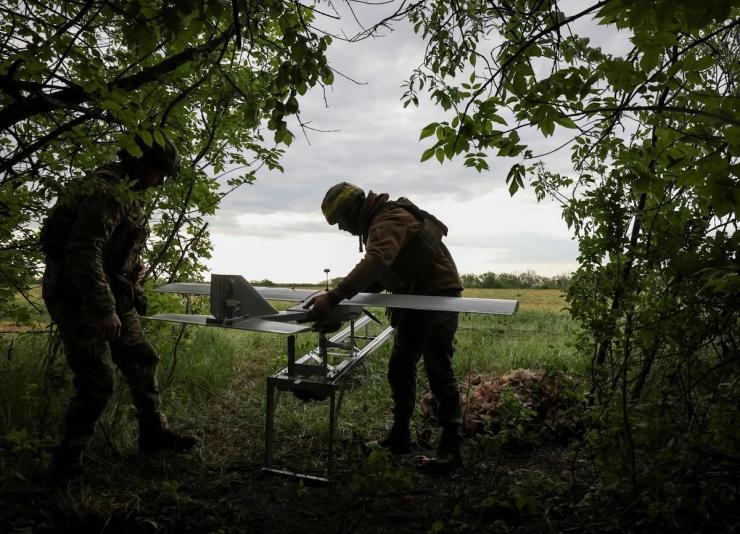Gulf countries have long been reliant on complex, and expensive, air defense systems. But drone warfare — cheap, precise, expendable — is forcing a fundamental rethink and the region may benefit from a change in calculus. In short, they can deter through offense, not defense.
All militaries have finite resources that they must allocate between countermeasures (defensive investments) and retaliatory capabilities (offensive deterrence). Game theory is a framework for these considerations, as military strategists must analyze their adversaries’ likely choices as the basis for their own decisions.
When facing an enemy attack, a key advantage of defensive countermeasures over retaliation is that it allows the defending nation to maintain the moral high ground. Retaliating can cause significant diplomatic fallout if it is perceived by other countries to be needlessly escalatory or aggressive, and it also risks a full-blown war against the target. In contrast, the international community has no qualms with a country neutralizing an incoming threat.
During the Cold War, for example, Soviet bombers regularly tested US airspace, and the US would respond by scrambling interceptor jets that would prevent the bombers from violating its sovereignty.
Relative effectiveness is also an important consideration: If the likely attacks are cheap and easy to defend against, while retaliating is expensive and difficult, then countries will prefer the former. During the 20th century, using a modern fighter jet to conduct a sortie in enemy territory was extremely risky. The cost of the jet and training the pilot was over $30 million, and the likelihood of success was low given prevailing air defenses. Precision missiles were limited to advanced militaries, and low-cost missiles were too inaccurate to function as a viable substitute for a fighter jet.
As a result, in a military confrontation, the economic advantage was with the defender, making waiting the aggressor out a viable strategy.
These are the general circumstances that Middle Eastern countries developed their defense doctrines in, resulting in heavy investment in air defense systems, typically supplied by the US. Regional militaries have been organized to intercept enemy aircraft and ballistic missiles, with a comparatively low emphasis on retaliating against aggressors.
The arrival of drones upends these tradeoffs. Many conventional defensive measures are made nearly obsolete when faced with the low altitude, swarm tactics, or stealth of modern drones. These unmanned aerial vehicles can now deliver higher precision than a 20th-century fighter jet, but at a fraction of the cost and without the need to worry about an expensively-trained pilot dying or being captured. Countermeasures are still possible, but many are expensive compared to the low cost of offensive drones.
In this new dynamic, the economic advantage belongs to the aggressor. The result is a troubling asymmetry: Attackers can unleash wave after wave of low cost drones, inflicting material and human costs, as well as defensive costs to intercept. For governments in the region, this means it is now optimal to shift resources from defense to attack, with a greater emphasis on retaliation as a deterrent.
If enemies can attack a country’s critical infrastructure — such as a power station or desalination plant — with much greater ease, and lower cost, than 20 years ago, today, a crucial deterrent is the ability to do the same to the attacker. Otherwise, the attacker will have little incentive to stop.
As the rules-based order has frayed and international law is less of a constraint, the threshold for condemnation has risen. In the past, violating another country’s sovereignty risked turning the aggressor into an international pariah. In 2025, however, the international order appears worryingly similar to a Hobbesian state of nature. In such a climate, deterrence by capability is the rational option.
To be sure, as drones continue to wreak havoc, innovators will exert more effort in developing low-cost countermeasures, and at some point, the pendulum might swing back toward defense. But for now, Gulf countries are more likely to follow game theory and invest in developing their offensive drone capabilities to ensure that they have an effective deterrent against prospective aggressors.
Omar Al-Ubaydli (@omareconomics) is the Director of Research at the Bahrain Center for Strategic, International and Energy Studies (Derasat), and a contributor to Semafor.



